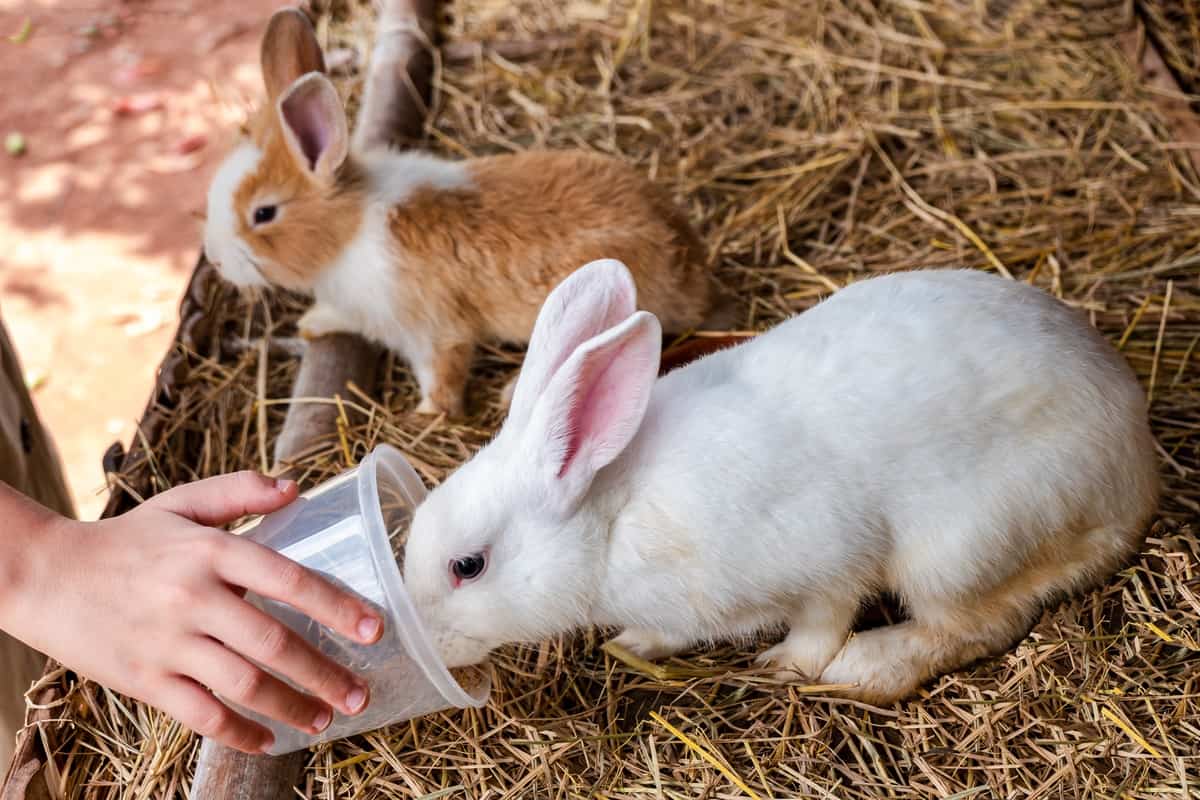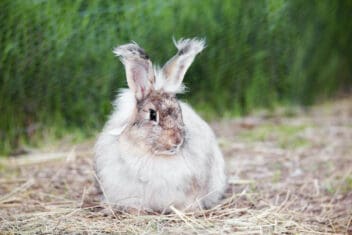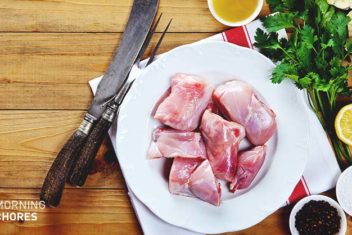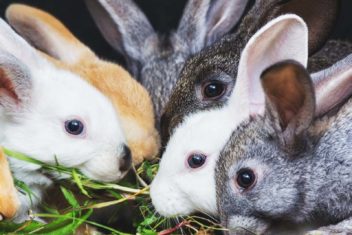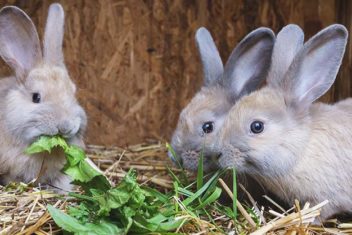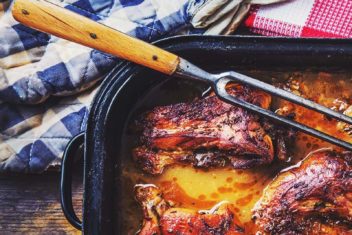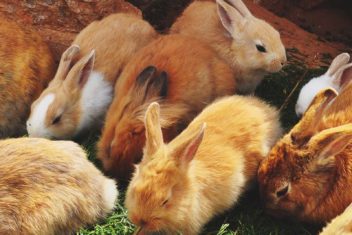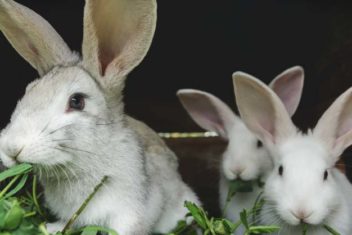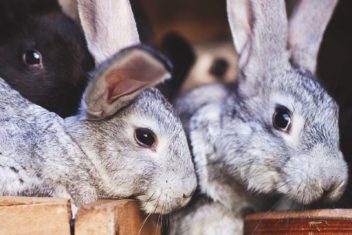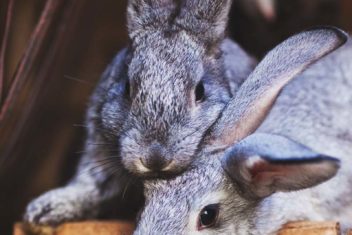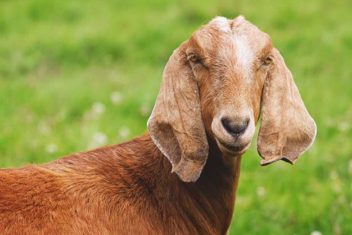Are your meat rabbits looking a little…not so meaty?
When you’re raising rabbits as pets, it probably doesn’t matter much to you whether your rabbits are a little on the thin side, as long as they’re healthy.
However, when your priority is to raise rabbits for meat as quickly and efficiently as possible, you might be wondering whether there are ways you can encourage them to pack on the pounds without breaking the bank.
Here are some tips on raising meat rabbits so that you can keep your animals healthy – and productive.
1. Determine Whether They Need to Gain Weight
Before trying to increase the rate of gain for your rabbits, it’s essential to identify whether weight gain is truly even necessary.
There are more than 300 breeds of rabbits and a healthy weight for one breed will likely not be the same as the next. Knowing how much your rabbit needs to gain will help you determine the best possible way to do so.
Most rabbits will reach full size by about 8-12 weeks of age. Fully grown adults can grow to 10-12 pounds within this short period of time. However, some breeds may take more or less time, so it’s important to be aware of what’s reasonable based on the breed.
If you are raising a non-meat breed and hoping to see the same fast rate of growth, you’ll need to think again. You should only raise meat breeds if you plan on getting this high rate of gain.
Consider raising breeds such as:
- California
- New Zealand
- American Chinchilla
- Champagne D’Argent
- Silver Fox
- Satin
- Cinnamon
- Standard Rex
- Palomino
- Florida White
Typically, a rabbit can put on about 12-ounces per week, but sometimes more for certain breeds. Be careful of overdoing it with the weight-boosting foods below, though. While you no doubt want your meat rabbits to grow as quickly as possible, force-feeding a rabbit is not a good idea, either.
Rabbits who pack on the pounds too quickly are subjected to the same issues we are when we gain too much weight. They can suffer from kidney disease or heart disease or even joint and muscle problems.
2. Change Diet Slowly Instead of Abruptly
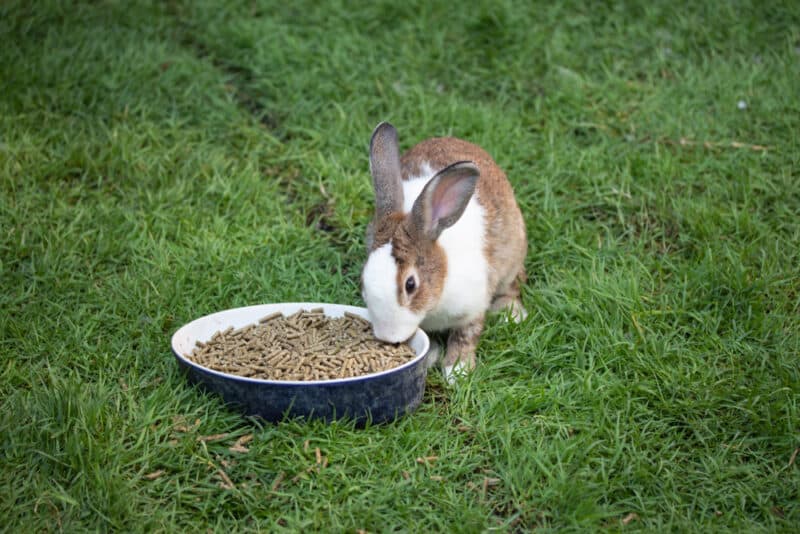
When it comes to helping your rabbits gain weight, one of the best ways is to offer free feed. If you’re in the habit of measuring out pelleted food, you can stop doing this. Giving your rabbit free choice of all the high-calorie pellets it can eat is a great way to help it gain weight.
If you’re trying to pack the pounds onto young rabbits, you might have to consider using baby bunny pellets. This is a specially formulated feed designed just for baby rabbits. It’s higher in protein and calories to support developing rabbits’ rapid growth.
Some people use these pellets with adult rabbits to help them gain weight faster, too. You can mix these higher-calorie pellets into the regular feed. That’s fine, but be aware that it can cause rapid weight gain that can be problematic, causing some symptoms I mentioned above.
Otherwise, any of the options below will help your rabbits gain weight quickly, but healthily. Change the diet of your rabbits slowly, rather than switching things up overnight (this is especially important if you are making major changes).
Otherwise, you may find your rabbits suffering from digestive distress and other problems as a result of the change.
3. What to Feed Rabbits to Gain Weight Faster
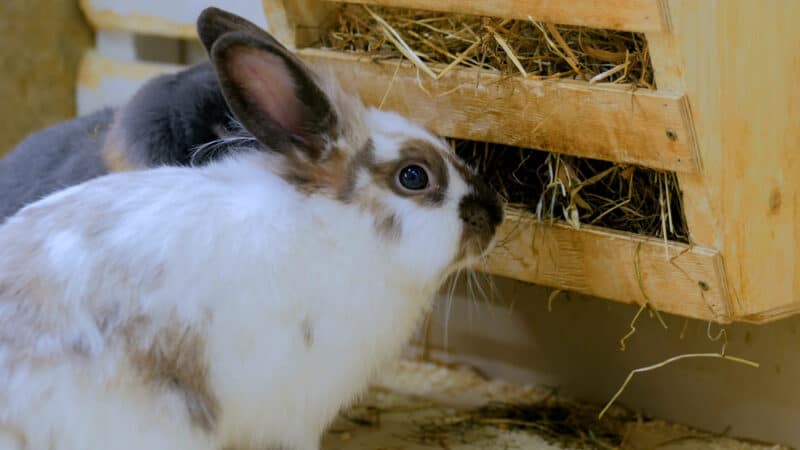
Here are a few foods you can feed your rabbits in addition to their regular diet of pellets. These foods will help them gain at a reasonable rate for their breed and age.
1. Hay
Timothy hay should always be offered to your rabbits. However, you can add a few extra calories by adding some alfalfa hay, too. Mixed with timothy hay, alfalfa hay is highly palatable and will help your rabbit pick up the pace. It’s high in protein and many other nutrients that your rabbits need.
Some people even recommend spraying their hay with apple juice. Again, this will help add some calories and entice them to eat.
Oat hay is another good option. It is absolutely irresistible to rabbits and includes lots of fiber and protein.
2. Fruits
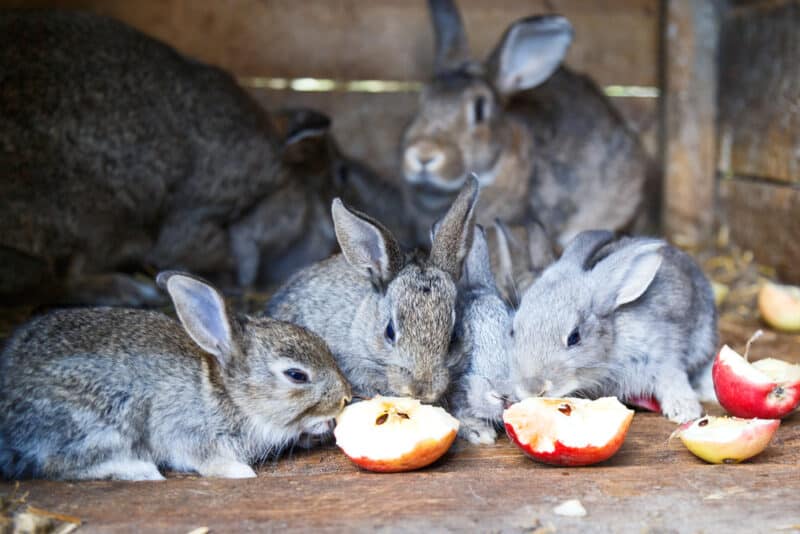
Fruit is calorie-dense and loaded with nutrients. Feeding your rabbits lots of fresh vegetables and fruits is a great idea. However, if your rabbits aren’t gaining enough weight, you may have to back away from the leafy greens and instead add more fresh fruit.
One good option to consider is banana baby food. Bananas are loaded with calories and are very fattening to rabbits. If your rabbits are overweight, in fact, bananas should be avoided.
However, mixing just a tablespoon or two of banana (banana baby food works well because it’s pre-mashed) into your rabbits’ pellets can help entice them to eat. Just don’t feed too much, since bananas have a constipating effect.
Apples work well, too. These foods are high in carbohydrates and calories. Plus, the extra vitamins and minerals found in apples can help boost the immune system.
3. Rolled Oats
Rolled oats are a great source of fiber and they’re also calorie dense. Mix a teaspoon of rolled oats with a bit of water and you’ll have a paste that your rabbits love to eat – and will help your rabbits gain weight, too. It’s easy to digest and soft on your rabbits’ teeth.
If your rabbits are having trouble gaining weight due to a medical issue or sickness, this mixture will also help them get their appetite back.
4. Root Vegetables
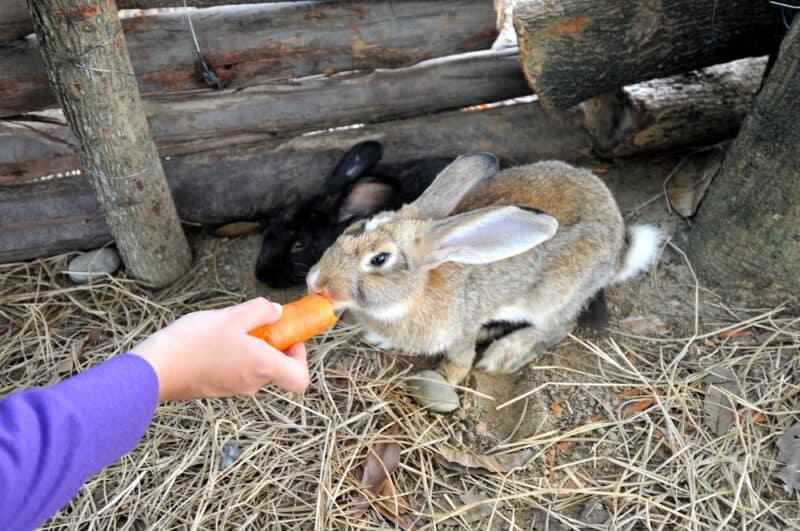
Again, skip the leafy greens and stick to heartier veggies when you’re trying to get your rabbits to gain weight.
Good options include beets, carrots, and squash. In fact, canned pumpkin is a simple food you can feed your rabbits. It is also a wonderful natural dewormer and has amazing effects on the digestive system.
Use plain canned pumpkin – not the sweetened type you might use for pie filling. This has added sugars that can damage a rabbit’s digestive system.
5. Black Oil Sunflower Seeds
Sunflower seeds are high in both protein and fat. They are easy to add to a pelleted diet- just a quarter cup per day is perfect for helping a rabbit gain weight.
Introduce the seeds slowly at first since too many sunflower seeds can be upsetting to a rabbit’s stomach.
6. Nuts
Certain nuts, such as raw almonds, can be incredibly beneficial in helping a rabbit gain weight. Feed a few unsalted almonds a day – they’re high in fat and protein.
4. Slow but Steady – Be Consistent in Your Approach
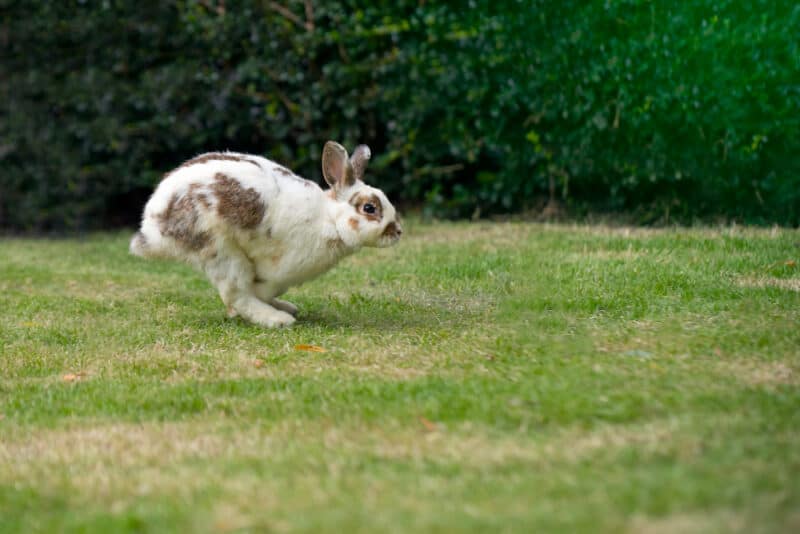
While some meat rabbits gain weight quickly, others put on weight more slowly but steadily. To know which category your rabbits fall into, you may have to get into the habit of weighing them often. Track the progress of your meat rabbits. In most cases, as long as they are gaining, they will continue gaining until they reach maturity.
Another tip? Don’t restrict exercise. Some people assume that their rabbits will retain all calories eaten if they aren’t able to exercise. However, an inactive rabbit is a depressed rabbit – and a depressed rabbit isn’t going to eat. Encourage plenty of activity!
With a bit of vigilance, you can raise rabbits for meat without any hiccups.
Rabbits can be raised for many reasons, but meat is one of the most common. Rabbit meat is eaten all over the world, consumed in stews, soups, barbequed dishes, or even as roasts. Rabbits are easy to raise and since they reproduce so rapidly, they are quite economical to raise for meat, too.
Not only that but rabbit meat is considered white meat with very little fat – that is, when you raise rabbits correctly.
To get your meat rabbits to put on weight at a reasonable rate (and without putting on lots of fat), you should consider the tips above. Hop to it – and you can raise productive, healthy rabbits for your homestead.
